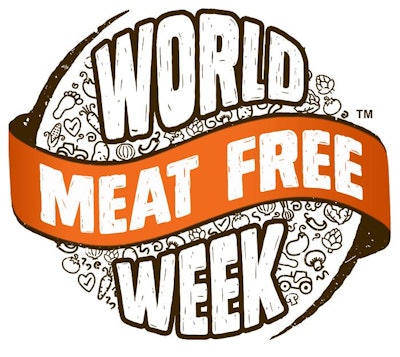
If you didn’t know, World Meat Free Week started on June 11 this year.
The initiative aims to shine the spotlight on reducing meat intake for the sake of the planet.
Before anyone throws their hands up in horror, or writes to me saying that I am an enemy of the poultry industry, as one reader has, my view is that burying your head in the sand is no way to respond to change. You don’t have to agree with World Meat Free Week, but it’s probably worth knowing that it exists.
2018 is the first time that World Meat Free Week is being held, and it has grown out of World Meat Free Day, which has been running for about four years. The initiative has been organized by meat substitute brand Quorn, owned by Monde Nissin Corporation.
So what do the organizers of Meat Free Week say and what do they want to achieve?
They claim that that as the global population rises and demand for meat rises with it, an extra 200 million metric tons of meat will be needed annually by 2050 if consumption continues at its current rate.
The week’s organizers go on to say that meat production is already responsible for 14.5 percent of global greenhouse emissions – more than emissions from global transport combined, and that the livestock sector uses 30 percent of the earth’s entire land surface.
These are familiar arguments, but where differences emerge is in how to respond. Rather than calling for an increase in volumes of meat production conducted in a more efficient and sustainable manner, World Meat Free Week argues that to increase our output to respond to rising demand for meat is neither sustainable nor ethically feasible.
One meal for a healthier planet
So is World Meat free Week calling for consumers to give up meat for a week? Perhaps surprisingly, the answer is no.
The all-or-nothing requirements of a vegetarian or vegan diet limit many people from helping tackle climate change through their diets, the week argues. The vegetarian, vegan and even flexitarian approaches can be too daunting for many, so the initiative’s organizers are suggesting “reduction.”
One meat-free meal during World Meat Free Week can have a huge impact and act as a catalyst to further change to a “less and better approach to meat” for the sake of the planet, and just one person’s decision to go meat free for just one meal could save the equivalent of nine people’s daily water usage, a carbon saving equivalent of boiling a kettle 388 times, the week's organizers say.
Unsurprisingly, the initiative has won support from a number of vegetarian retailers and animal welfare charities, along with a various celebrities, but interestingly a major food service company and some sports organizations are also lending their support.
And with the number of companies active in traditional proteins now investing in alternatives, and wanting to be active in “all” protein sectors, interest in this approach may be about to grow.


















